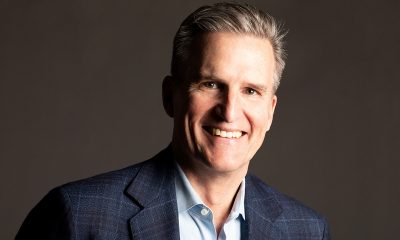Opinions
There’s no Pride in censoring queer gamers
Blizzard Entertainment bucks corporate trend of abandoning LGBTQ community

By Cyra Paladini & Evan Enzer
In the wake of major corporate setbacks in last moth’s Pride celebrations—think Starbucks’ “no decorations” policy or Target pulling Pride merchandise—videogame developer Blizzard Entertainment opted for inclusivity. Blizzard launched an in-game Pride celebration on Overwatch, a popular multiplayer game. The event features new costumes for LGBTQ+ characters and re-skinned maps to commemorate Pride. This festivity is the latest example of video games’ growing importance as a space for social expression and connection. Resourceful players use video games for political rallies, religious ceremonies, protests, and dating. Although gaming can provide an important digital public forum, new research finds that game moderation programs alienate minority players, and in-game censorship limits free expression. Sadly, historically marginalized gamers, like the LGBTQ players Overwatch is celebrating, feel these harms most strongly. It’s time for governments and companies to rethink video game content moderation.
Nearly all multiplayer online video games implement some form of content moderation to reduce harassment and create a fun environment. To stem the constant flow of foul play, entertainment companies rely on computer programs and overworked moderators to filter offensive communications and ban abusive players. Unfortunately, these programs lack social context, and often mistakenly censor players merely responding to or defending against the harassment.
Game moderator programs consistently flag women, LGBTQ gamers, and members of other underrepresented groups who stand up for themselves against trolls. Many turn to Reddit to share experiences like this player’s: “A guy got me suspended on PlayStation for a week. He said some extremely racist and antisemitic stuff then proceeded to message me…baiting me into paraphrasing what he said and reporting my message.”
Research shows that many content moderation programs block words like “lesbian,” “gay,” or “sapphic.” This not only punishes gamers who use these terms as insults but also those who use them for self-expression, including a fellow Reddit poster whose username, “GaymFace,” (a play on the phrase “game face”) earned him a seven-day suspension. GaymFace, too, took to Reddit to express his discontent: “I’m a member of the LGBT community and have proudly been playing under this name for 5+ years. […] my username changed to a Temp name because it ‘violates the community code of conduct.’”
The unintended consequence of content moderation is that companies routinely ban historically marginalized players from gaming platforms, sending the message that game developers have no desire to correct such a critical oversight, and don’t value their participation.
In the absence of effective industry moderation, Congress is also stepping in to prevent virtual violence, bullying, and restrict children’s access to age-inappropriate content. Similar to industry regulation, legislators paint with broad strokes when it comes to limiting digital speech. Again, such interference in gaming affects everyone, not just kids. When the government limits gamers’ ability to speak freely with such rigid content-based restrictions, they also dictate how players may express themselves. The American government ought not to be the judge of acceptable expression. Furthermore, when we allow point blank banning of certain speech as a practice by state officials, we set a precedent for the imposition of ideologically motivated limitations on digital actors and the media they participate in.
The fundamental issue is that governments, companies, and players hold contradictory understandings of what video games are supposed to be. To entertainment companies like Blizzard, games are art, revenue streams, and places to play creatively. Government officials view videogames as mass media to regulate like any other industry. But to players, games are a channel for spending time with friends and loved ones. To them, digital self-expression — so long as it’s not at the expense of others — is critical, and gaming is often a medium for otherwise impossible explorations of personal identity. Players go on dates with their long-distance partners, navigate fantasy worlds with their best friends, and build virtual homes. When gaming is an extension of life, it is natural that players will become livid when moderators ban them from expressing their identity or defending themselves.
Video games are not media that players passively consume. They are immersive virtual worlds, the closest thing to a real metaverse we have. If we approach gaming in this way, as players, we need to rethink how governments and companies censor speech and content inside video games. This should include decision-making procedures that allow gamers to present their side before the company bans them. It also must include building context-aware moderation programs, complete with thorough and subjective human review rather than just artificial intelligence word filters. Lastly, game publishers, led by diverse teams, should release more titles designed to represent historically marginalized gamers authentically. There is less need for content moderation when games represent all players and promote pro-social behavior from the start, meaning inclusive games provide a better opportunity for everyone to express themselves in the new virtual world.
Evan Enzer is a Berkeley Law graduate, certified privacy professional, and legal fellow at The Surveillance Technology Oversight Project. Cyra Paladini is a communications intern at S.T.O.P. She is currently studying Cognitive Science at Barnard College and is a staff reporter at the Columbia Daily Spectator, and formerly served as an advocacy coordinator for Amnesty International and March For Our Lives.
Opinions
Successful open relationships take effort
We have options as couples but they all require work

(Editor’s note: This is the second of a two-part feature on open relationships. Click here for last week’s installment.)
Open relationships are often ridiculed as the easy way out of commitment. After speaking with Scott and Kelsey, however, it’s clear they’re anything but easy.
Kelsey reflected on the ups and downs of being open in the past. “Younger me definitely needed it,” Kelsey said. “At the same time, drama came with it as well.”
While Scott and their partner have been together for nine years, it took four before they decided to open their relationship. “It came from the desire for the two of us to meet boys together,” said Scott. “Then we had some really terrible threesomes.”
Drama. Bad threesomes. Yikes – these aren’t exactly selling points for being open. But their experiences underscore something important: open relationships, like all relationships, are actually quite hard. Couples considering openness shouldn’t trick themselves into thinking it will make things easier. In reality, they take a lot of work.
For Scott, those really terrible threesomes led them to opening up further, but with established boundaries. “We came up with ground rules. Use protection. No spending the night at somebody’s house, etc.”
Since Scott and their partner are happy in their relationship, these rules seem to work even if they’ve shifted over time. “Being in an open relationship comes down to being really good at communicating with your partner,” they added. “It’s about communicating and checking in to see where your partner is.”
Open relationships should be for the right reasons
As open relationships began taking off, observers were skeptical for good reason. “In the past, people were just cheating,” said Kelsey. Another comment from Scott echoed this. “I’ve seen open relationships and it felt like one partner was being taken advantage of by the other.”
It turns out there is a fine line between sexual exploration and free passes. While some open relationships walk that line well, others – not so much.
In all fairness, now more than ever it’s difficult to remain monogamous, and one culprit is the rise of accessible hookup culture via social media. Apps like Tinder, Grindr, and dare I say Instagram are facilitating secret sexual connections never seen before. They ushered in a new era of cheating into relationships, alongside a bit of excessive stalking as well.
So, to avoid an atmosphere of mistrust and pain, a natural evolution for couples is to change the rules altogether. Cheating can’t be cheating if it’s allowed, right?
However, once it is allowed, I wondered why these people don’t cut the strings altogether and be single. In response, Chad made an interesting point: people aren’t just afraid of being cheated on – they’re afraid of the appearance of being single as well. We live in flashy times where our online image means everything. The dream is not necessarily having a partner, but showing the world you have a partner. Without that, you otherwise appear lonely.
So, do open relationships ease the pain of cheating and perceived loneliness? As a proud lone wolf I’m not the best person to assess, but based on my observations I can say this: being open works for some couples, but by no means is it a fast pass to being happy. Understanding why you want one is just as important as discovering how to make one work.
With all this said, the undeniable risk – and perhaps downside – of a monogamous coupling is the higher chance of cheating outright. Unfortunately, that’s something Chad knows all too well.
Preferring monogamy is still OK
Chad had dated someone for two years before they married for five. Then, just over a year into the pandemic, his husband informed him he was dating someone else. They separated a few days later.
For Chad this was painful, as it is for anyone, gay or straight, who’s gone through something similar. But when I asked him if this experience shaped his outlook on what he’s looking for, his response came as a bit of a surprise:
“It has not changed my view for or against open relationships,” he said. “I learned a lot in my marriage. It takes a lot of love, trust, and communication, which at times can feel like work. It also takes two; one can’t carry the relationship. I want to date someone who wants to be in a relationship with me.”
My heart swells hearing that, for even after experiencing the deepest kind of hurt, Chad searches for his one and only. Why? Because for him, the love he’s looking for is worth the wait. It’s a beautiful sentiment that makes so-called hopeless romanticism the raddest feeling in the world sometimes.
More importantly, Chad doesn’t let fear alter his view on love, and to me that’s the most important lesson of this article. Love always comes with risks, and lowering your standards to reduce them never really pans out, does it? The best we can do is to be ourselves.
By the way, this is a lesson I should also apply. My main hesitation toward an open relationship is that I’m a jealous bitch, and I fear that jealousy will never go away. Yet this can be hard to admit when everyone around you is propping up a culture where open is supreme and jealousy is immature.
When I brought this up to Kelsey, she pushed back with a simple question: “Do you think jealousy is a bad thing?”
This caught me off guard. “I’m not sure,” I replied. “Do you?”
“Jealousy is a natural, human emotion,” she said. “It’s what you do with it that matters.”
So, maybe my goal is not to suppress my jealousy but rather be upfront about it. If it’s part of me, I should own it, then ideally find someone who loves me regardless.
Changing your mind is OK, too
In gay man speak, I was a top for my first seven years before I embraced bottoming. For some, they’d be shocked to hear it. Yet maybe no one should be surprised, for as we all know sexuality is fluid, and this applies to more than just your orientation. Your sexual preferences can shift over time, too, and this will inevitably affect your relationships.
This was the case for Scott and their partner. “When we first started dating, we did not want to be open,” they mentioned, “but as our relationship grew, we decided to reevaluate that.” Meanwhile, Kelsey went the opposite direction – she was open back in the day but chooses to be closed now.
Even Chad remains open to being open. “I’m not opposed to an open relationship, but I feel like it would take more work. I just don’t see myself starting a relationship open. The first few years there is a lot of learning about each other.”
In a world of shifting preferences, the best we can do is reflect on what we want and be honest about it. Life is a process of discovering who we are, and damn is it messy. So, perhaps I should cut some slack to the couple trying things out. And perhaps they can cut me slack for not understanding their rules.
For the couples: remember, a solid relationship is not only about meeting the needs of your partner, because your needs matter, too. The best relationships, open or closed, strive to find that balance.
For those still searching: remember that love is more than just that thing, that connection, that spark. In fact, love is so complex that the “spark” is just one of many factors, alongside timing and how you want to be loved, that come together and form an imprint as unique and special as the person you want to be with.
In this sense, open and closed relationships aren’t diametrically opposed but rather complimentary, a sort of yin and yang where both become better because the other option exists. Today, we have options as couples, and that’s significantly better than abiding by rules because we assume that’s how it must be.
And that feels right. Because regardless of whether you’re more a Chad or a Scott, the truth is: I feel lucky to have both.
(Writer’s note: A big thank you you to Chad, Scott, and Kelsey for allowing me to share their stories.)
Jake Stewart is a D.C.-based writer and barback.
Opinions
Fact: The next president will be Biden or Trump
One candidate is clearly better for the future of the world

Like it or not, the next president will be either Joe Biden or Donald Trump. In our system, third-party candidates are simply spoilers, they don’t win. The last time a third-party candidate won was 1856. It has been 36 years since a third-party candidate even got more than 5% of the vote. So, it’s time to face reality and choose; for your future, do you want Biden or Trump?
I was prompted to write this column because I see the media interviewing young people about who they want as their president. I have great respect for the young people of today. In many ways, they are smarter than my generation was. But it’s clear, some don’t fully understand the presidential election process. I hear many complain about Biden, and then follow that up and say they will never vote for Trump. Some then say they will vote for a third-party candidate. They need to understand their third-party candidate will not win, but their vote could help elect Trump. I hate to say it, but in 2024, voting for a third-party candidate is the equivalent to flushing your ballot down the toilet.
I am an unabashed Biden supporter. I see the great things he has done, including: getting us through the fallout from the pandemic, passing an infrastructure bill, forgiving billions in student loans, ensuring our economy is the best in the world with more than 13 million jobs created, and increasing wages. He supports unions, being the first president to walk a picket line with the UAW. His administration is working to deal with climate change. He is fighting for a woman’s right to control her own body and healthcare, and supports full equality for the LGBTQ community. In this dangerous world he has kept our troops out of war.
Then there is Trump. To be clear; I see him as a racist, sexist, misogynistic, homophobic, pig. OK, so maybe I don’t have strong feelings about him. Trump has been found liable for sexual assault and has been indicted on 91 counts. He proudly claims credit for having taken away control of their body and healthcare from women, when the justices he appointed ended Roe v. Wade. He supports states making decisions on abortion, and we see what recently happened in Arizona. He is a climate change denier and is opposed to wind and solar power. He wants to give more tax deductions to the rich and to corporations, while opposing any increase in the minimum wage. He opposes equality for the LGBTQ community, refusing to endorse the Equality Act. He opposes student debt relief.
You may see these candidates differently, and that is OK. But if you like one more than the other, fear one more than the other, or just aren’t enamored by either, you must still make a choice and vote for one of them. Staying home is abrogating your civic responsibility, and especially if you would never vote for Trump, understand your staying home helps him.
Young voters, like all voters, should take the time to do the research on both candidates. Then match what you find as close as possible to what you want to see as your future. If you want student loan relief, equality for the LGBTQ community, women having control of their body and healthcare, equal pay for women, efforts to ameliorate the impact of climate change, then clearly Trump is not your candidate.
I hear some young people say they won’t vote for Biden because of his positions on the Israel/Hamas war. I, too, have called for Israel to recalibrate how they fight this war. But I ask you to look again at Trump’s history of attachment to Netanyahu, even going so far as relocating the U.S. embassy to Jerusalem. If you want a chance for the Palestinian people to live in peace and prosperity, for Israel to remove their settlements from the West Bank, your chance of having that happen is clearly better with Biden than Trump. Don’t let your emotions today, cloud the reality of the future.
Yes, Biden is old, but so is Trump. He apparently can’t even stay awake at his own trial having nodded off two days in a row. So, since one of them will be president, with no third-party candidate having a chance, I urge you to look at them again, in a realistic way. Then make your choice. I think you may come to the same conclusion I have. Though not perfect, and no one is, Biden is the better candidate for your future, and for the future of the world.
Peter Rosenstein is a longtime LGBTQ rights and Democratic Party activist. He writes regularly for the Blade.

In 2023, the law was signed to expand the District’s medical cannabis program. It also made permanent provisions allowing residents ages 21 and older to self-certify as medical cannabis patients. Overall, cannabis is fully legal in D.C. for medical and recreational use, and 4/20 Day is widely celebrated.
Medical cannabis, for example, has a long history with the LGBTQ community, and they have often been one of the oldest supporters of marijuana and some of the most enthusiastic consumers. Cannabis use also has a long history of easing the pain of the LGBTQ community as relief from HIV symptoms and as a method of coping with rejection from society.
The cannabis culture continues to grow in the District, and as a result, so does the influence on younger people, even youth within the LGBTQ community. Drug education can play an important role and should not be avoided during 4/20 Day. Parents and educators can use drug education to help their kids understand the risks involved with using marijuana at a young age.
According to DC Health Matters, marijuana use among high school students has been on the decline in the District since 2017. In 2021, it was estimated that around 20% of high school students use marijuana, a drop from 33% in 2017. Nationally, in 2020, approximately 41.3% of sexual minority adults 18 and older reported past-year marijuana use, compared to 18.7% of the overall adult population.
When parents and educators engage with their kids about marijuana, consider keeping the conversations age appropriate. Speaking with a five-year-old is much different than speaking with a teenager. Use language and examples a child or teen would understand.
The goal is to educate them about the risks and dangers of using cannabis at a young age and what to avoid, such as edibles.
Most important, put yourself in your kid’s shoes. This can be especially important for teenagers as they face different social pressures and situations at school, with peer groups, or through social media. Make a point of understanding what they are up against.
When speaking to them about cannabis, stay calm and relaxed, stay positive, don’t lecture, and be clear and concise about boundaries without using scare tactics or threats.
Yet, it’s OK to set rules, guidelines, and expectations; create rules together as a family or class. Parents and educators can be clear about the consequences without lecturing but clearly stating what is expected regarding cannabis use.
Moreover, choose informal times to have conversations about cannabis and do not make a big thing about it. Yet, continue talking to them as they age, and let them know you are always there for them.
Finally, speak to them about peer pressure and talk with them about having an exit plan when they are offered marijuana. Peer pressure is powerful among youth, and having a plan to avoid drug use helps children and students make better choices. Ultimately, it is about assisting them in making good choices as they age.
Members of the LGBTQ community often enter treatment with more severe substance use disorders. Preventative measures involving drug education are effective in helping youth make good choices and learn about the risks.
Marcel Gemme is the founder of SUPE and has been helping people struggling with substance use for over 20 years. His work focuses on a threefold approach: education, prevention, and rehabilitation.
-

 District of Columbia3 days ago
District of Columbia3 days agoCatching up with the asexuals and aromantics of D.C.
-

 South America3 days ago
South America3 days agoArgentina government dismisses transgender public sector employees
-

 Maine4 days ago
Maine4 days agoMaine governor signs transgender, abortion sanctuary bill into law
-

 District of Columbia4 days ago
District of Columbia4 days agoBowser budget proposal calls for $5.25 million for 2025 World Pride












